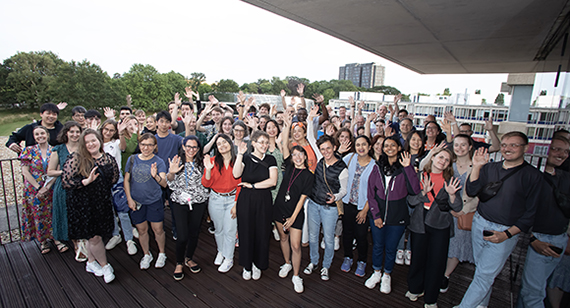Please note: This course will be taught online only. In person study is not available for this course.

Daphne C. Watkins, Ph.D., is a professor of social work and a University Diversity and Social Transformation Professor at the University of Michigan (USA). She has taught research methods for more than two decades and developed the first Certificate Program in Mixed Methods Research at the University of Michigan School of Social Work in 2013. The certificate program — designed for researchers and practitioners interested in doing mixed methods research in practice settings — was the motivation behind her first book Mixed Methods Research (2015, Oxford University Press), for the Pocket Guides to Social Work Research Methods Series. In 2022 she published Secondary Data in Mixed Methods Research (SAGE Publications) as a how-to guide for researchers who want to incorporate secondary data sources in their mixed methods projects. In addition to developing culturally-appropriate strategies for conducting mixed methods, Dr. Watkins developed the Rigorous and Accelerated Data Reduction (RADaR) technique, an individual and team-based approach to organizing, coding, and analyzing qualitative data. Professor Watkins is the founding director of the Gender and Health Research (GendHR) Lab and the award-winning Young Black Men, Masculinities, and Mental Health (YBMen) Project, which leverages technology to provide mental health education and social support to young Black men and boys. She currently directs the Vivian A. and James L. Curtis Center for Health Equity Research and Training at the University of Michigan.
Course Content
Aspiring social scientists often wonder, “what is mixed methods research?” and “when should I use mixed methods in my research?” But before making decisions about using mixed methods research, other questions should be considered, such as “what is my philosophical stance?” and “what is my research question?” In this course, I will introduce students to mixed methods research in the social sciences. This course will provide depth and breadth on developing well-refined and theoretically driven mixed methods studies, along with guidance on using appropriate methods and instruments during data collection, integration, and analysis. The course content will be enhanced by an overview of both qualitative and quantitative methods, separately, then an examination of these methods together, and their valuable contributions to mixed methods research. The course provides (1) an introduction to mixed methods research; (2) an examination of the philosophical assumptions that guide the decision to use mixed methods research; (3) a context for data analysis and integration; and (4) a framework for drawing conclusions from mixed methods that inform future research, practice, and policy. A primary aspect of the course will be to teach students how to determine if mixed methods are necessary, given the problem statement and research questions.
Course Objectives
By the end of the course, students will be able to: (1.) Adopt a philosophical stance and highlight the major theoretical underpinnings guiding mixed methods research; (2.) Determine when someone should consider conducting a mixed methods study and understand the procedures for choosing a mixed methods design; (3.) Discuss measurement, sampling, and analyzing qualitative and quantitative data for mixed methods research; (4.) Describe ways to integrate and interpret qualitative and quantitative data to address a mixed methods research question; and (5.) Identify ways to disseminate results from mixed methods research.
Course Prerequisites
This is an introductory course. Participants are not required to have anything more than basic knowledge, comfort, and familiarity using one (or both) of the single methods (qualitative or quantitative).
Required text (this text will be provided by ESS):
Watkins, D. C. & Gioia, D. (2015). Mixed methods research. Pocket Guides to Social Work Research Methods Series. Oxford University Press: New York, NY. ISBN 9780199747450.


